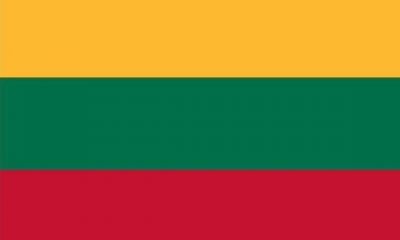
World

Lithuanian election puts diaspora centre stage
More than 4 000 South Africans have had their Lithuanian citizenship restored to them, and with the benefits of citizenship comes the responsibility to elect strong, credible, and supportive leaders in the Lithuanian Parliament.
This year, Lithuanians in South Africa have so far voted for both a new president and in European parliamentary elections. Many people are overwhelmed by the frequency of elections.
New elections, scheduled for next week, will determine the composition of the Lithuanian Parliament.
What makes the Lithuanian parliamentary elections special is the election of a Lithuanian diaspora representative, whose job and responsibility it is to look after the interests of Lithuanians living abroad. Lithuania may be one of very few countries which offers its ex-pat community such a privilege. South Africans must take advantage of this opportunity.
Dr Dovilė Jakniūnaitė, a professor at the Institute of International Relations and Political Science of Vilnius University and the head of the Institute’s International Relations Department, was in South Africa recently. She explained that the Lithuanian Parliament is elected every four years and this year, elections will be held on 13 October 2024.
In South Africa, voting will take place at the following locations at the following times:
- Cape Town: Bagraims Attorneys, 5 De Lorentz Street, Tamboerskloof, Gardens, Cape Town, on 8 October from 12:00 to 16:00;
- Pretoria: at the Lithuanian Embassy on 8 October from 13:00 to 17:00; 10 October from 13:00 to 17:00; and 13 October from 10:00 to 19:00; and
- Johannesburg: at Beyachad on 13 October from 11:00 to 16:00.
Those who want to vote by post should have already registered at www.rinkejopuslapis.lt by 21 September 2024. Those who had difficulty registering, should contact the Lithuanian Embassy at kons.za@urm.lt.
People voting in person need to bring their Lithuanian passport or identity card.
For the second round, on 27 October, there are indications that voting abroad may not be possible.
Said Jakniūnaitė, “The actual electoral system in Lithuania is pretty complex. We have a mixed system. Half of the parliamentarians – 70 representatives – are elected off party lists using proportional representation, and 70 representatives come from districts or constituencies. One member of Parliament is elected from each constituency. For those Lithuanians who live abroad, you have one person in Parliament specifically representing the Lithuanian diaspora.
“Voters will receive two ballots – one proportional representation ballot, and one for the diaspora constituency”, Jakniūnaitė said. “Currently, we have three parties in government in coalition. They are right-liberal parties with Homeland Union, considered a conservative party, and the prime minister’s party leading the coalition. Then we have two smaller liberal parties, the Liberal Union and Freedom Party.”
However, the political scientist said, “In these elections, we are expecting a change. Lithuanians usually change governments every four years. The opposition parties could get some kind of coalition in a plurality of seats, without a clear majority. It’s likely that the centre-left Social Democratic party may form the next government”.
Given the number of elections this year, many voters have election fatigue and Jakniūnaitė is expecting a lower turnout than usual.
Both major parties are generally supportive of Israel. After 7 October, all the major parties in Parliament were vocally supportive of Israel and condemned Hamas. Support for Israel seems entrenched in Lithuanian politics, however the Social Democrats may fall more in line with European Union policy but are still generally supportive of Israel while recognising the humanitarian challenges in Gaza.
According to Jakniūnaitė, the big issues in these elections are Russian expansionism; unemployment; education; and salaries, specifically teachers’ salaries. Increased defence budgets are also likely to be an issue.
Litvaks (descendants of Lithuanian Jews) have traditionally come out en masse to vote in Lithuanian elections, and we hope this week’s elections have a similar appeal.










